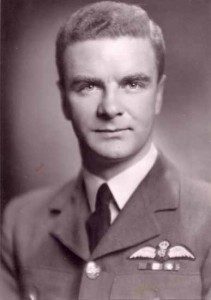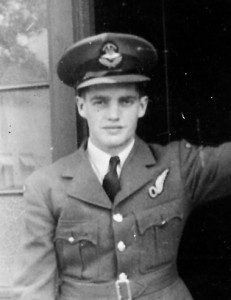
The escape list largely determined during the March 14 meeting began to disseminate through the barracks huts the next day.
Among those Canadians learning their position on the list, George McGill, who had conjured up diversions during earlier escape attempts and later a tunnel security leader, would be 75th into the tunnel. Gordon Kidder, who with fluency in European languages had taught fellow kriegies how to converse in German on the outside, would be 31st on the list. Hank Birkland, the last of the Canadian tunnellers after the Feb. 29 purge, would exit the tunnel 51st. And Tommy Thompson, the Canadian pilot who’d personally earned the wrath of Herman Göring for waking the Reichsmarschall in the September night he was shot down in 1939, would be 68th out the tunnel.
Weighing on the minds of so many of the active escape committee personnel were the details of duty. As a section head in the forgery team, Tony Pengelly had directed the production of many of the escape documents. He knew their design, detail and delivery better than almost anyone inside the wire. But also wondered whether, on the night of the escape, somebody in his branch of Dean and Dawson should stay behind to check that every identification card was in the right hand s of the right escaper as he entered “Harry” on his way out. Nothing could be left to chance.

“As a prisoner of war… it was the greatest decision of my life,” Pengelly said. “There was this responsibility, and on my acceptance or rejection of it, depended my chance at freedom.” In the end, Pengelly decided to forfeit his spot, number 93 on the escape list.
Meanwhile, George Sweanor, who had even more to hurry home to, including a new bride and a newborn daughter he had never seen, had trepidations about the entire enterprize.
“I argued that a mass escape would cause a desired disruption to the German war effort, yes, because it would take a lot of people to track us down,” Sweanor said. “But there was really little hope of anybody getting home. … I felt relieved (that) my name was not drawn.”
My dad Law Power also was there in the camp